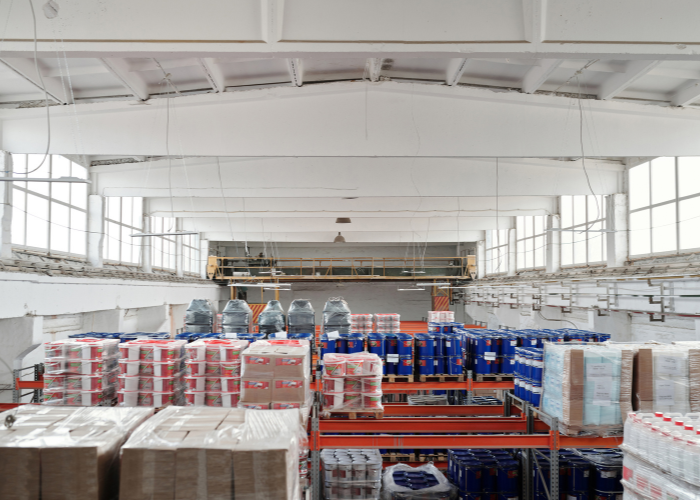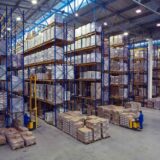Industry Spotlight: The Role of Logistics in Retail Supply Chains
June 25, 2024 0Industry Trends & Market Insights
The retail industry has seen tremendous changes in recent years, with the rise of e-commerce and shifting consumer expectations. Behind every successful retail business lies a complex and highly efficient supply chain. At the heart of this supply chain is logistics, the backbone that ensures products get from the manufacturer to the store or directly to consumers’ doors.
In this Industry Spotlight, we’ll explore the crucial role logistics plays in modern retail supply chains and how businesses can optimize their operations to stay competitive in today’s fast-paced marketplace.
Logistics: The Core of Retail Supply Chains
Logistics involves the movement of goods from one point to another, ensuring that products are delivered on time, in the right condition, and at the right cost. It encompasses everything from procurement and warehousing to inventory management, order fulfillment, and distribution.
In retail, the logistics process is especially vital due to the rapid turnaround time needed to satisfy consumer demand. Here’s how logistics impacts various stages of the retail supply chain:
1. Procurement and Sourcing
The first step in the retail supply chain is procuring products from suppliers or manufacturers. Logistics plays an essential role in sourcing raw materials, negotiating shipping routes, and determining the most cost-effective transportation methods.
Retailers must work closely with logistics providers to ensure that inventory is ordered and shipped at the right time to avoid stockouts or excess inventory, both of which can harm profits.
2. Warehousing and Inventory Management
Once products are shipped from suppliers, they are typically stored in warehouses before being distributed to retailers or directly to consumers. Effective warehouse management is critical for ensuring that products are readily available when needed, and logistics plays a key role in optimizing warehouse operations.
- Just-in-Time Inventory (JIT): Logistics helps streamline the inventory process by enabling JIT inventory systems, which keep inventory levels low while ensuring stock is replenished quickly.
- Stock Visibility: Real-time tracking and inventory management systems allow retailers to monitor product availability and adjust orders accordingly.
3. Order Fulfillment and Distribution
When a customer places an order, logistics becomes the driving force behind order fulfillment. Retailers rely on logistics to ensure that the correct products are picked, packed, and shipped to the customer on time.
In the modern retail environment, consumers expect fast, reliable, and flexible delivery options, from standard shipping to next-day or even same-day delivery. Logistics providers must coordinate transportation and distribution to meet these demands.
Key Components of Order Fulfillment:
- Picking and Packing: Logistics ensures products are selected, packaged, and prepared for shipment efficiently.
- Last-Mile Delivery: This is the final step in the logistics process, where products are delivered to the customer’s doorstep. This stage requires a high level of precision to meet customer expectations.
4. E-Commerce and Omnichannel Logistics
As more consumers shop online, retailers are adopting omnichannel logistics to seamlessly integrate their brick-and-mortar stores with their online platforms. This means that products must be available in multiple locations, whether in-store or in warehouses, and logistics must enable retailers to fulfill orders from any channel.
For retailers, this means managing a complex web of distribution points, including:
- Centralized Distribution Centers (DCs)
- Local Fulfillment Centers
- Retail Stores acting as Mini-Warehouses (Ship-from-Store)
Logistics providers are increasingly leveraging technology to streamline the integration of e-commerce and physical retail operations, ensuring customers can easily order products online and have them shipped from the nearest possible location.
5. Returns Management
Returns are an inevitable part of retail, and the logistics process must be set up to handle returns efficiently. In fact, the management of returns, also known as reverse logistics, is becoming increasingly important, especially for e-commerce retailers.
Efficient reverse logistics can help retailers minimize costs, reduce waste, and improve customer satisfaction by quickly processing returns and restocking items where appropriate.
Key Trends Shaping Retail Logistics
1. Automation and AI:
Automation technologies, including robotics and artificial intelligence (AI), are transforming the logistics sector. Retailers are using automated systems for inventory management, order picking, and even last-mile delivery, improving efficiency and reducing human error. AI is also helping optimize routes and predict demand, further enhancing supply chain agility.
2. Sustainable Logistics:
As sustainability becomes a top priority for retailers, green logistics practices are gaining traction. This includes optimizing delivery routes to reduce carbon emissions, investing in eco-friendly packaging, and using alternative fuel vehicles for transportation. Retailers are increasingly looking for logistics partners who share their commitment to sustainability.
3. Real-Time Tracking and Visibility:
Consumers expect transparency when it comes to delivery times. Real-time tracking allows customers to monitor their orders at every step, creating a better customer experience and reducing inquiries to customer service. This also allows retailers to predict potential delays and proactively address them.
4. Collaboration and Partnerships:
Retailers are increasingly partnering with logistics providers to improve supply chain efficiency and flexibility. These partnerships allow for shared expertise, better resources, and more innovative solutions to meet consumer demand.
Logix Across: Your Partner in Retail Logistics
At Logix Across, we understand the crucial role logistics plays in the success of your retail supply chain. Whether you’re managing a traditional brick-and-mortar store, an e-commerce platform, or both, we provide customized logistics solutions that meet the evolving needs of today’s retail industry.
Here’s how Logix Across can support your retail business:
- Efficient Order Fulfillment: Timely, reliable delivery to customers, with real-time tracking and last-mile solutions.
- Inventory and Warehouse Management: Streamlined processes for managing and optimizing your stock levels across multiple channels.
- Sustainability Practices: Green logistics solutions that align with your environmental goals.
- Omnichannel Logistics: Seamless integration of physical and digital retail operations for a smooth customer experience.
Partner with Logix Across for a Stronger Retail Supply Chain
Logistics is more than just transportation—it’s a strategic enabler of retail success. Logix Across offers the expertise, technology, and support you need to keep your retail supply chain running smoothly, efficiently, and sustainably.
Contact us today to learn how we can enhance your retail logistics and help your business thrive in an increasingly competitive marketplace.











